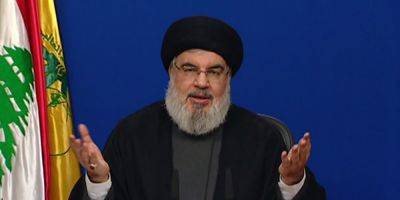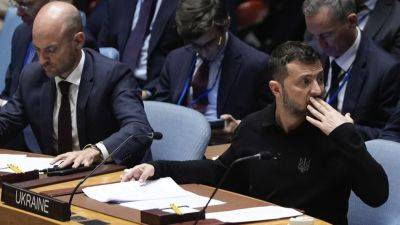Leaders depart UN facing prospect of a wider Mideast war — but with a blueprint for a better future
Follow the AP’s live coverage for developments on Israel and Hezbollahafter Israeli ground forces crossed into southern Lebanon.
UNITED NATIONS (AP) — They gathered at the United Nations surrounded by unsettling warnings of an escalating conflict that could engulf the Middle East and further shatter international relations that are based on “multilateralism” — nations working together and sharing power. A week later, world leaders headed home with the prospect of a broader war intensifying and global divisions front and center, not only in the Mideast but elsewhere.
There was no expectation of major breakthroughs in the public and private meetings at the annual U.N. General Assembly meeting of presidents, premiers and other leaders. There rarely is. But this year was especially grim, with no end in sight to the three major conflicts in Gaza, Ukraine and Sudan, and Israeli military action in Lebanon escalating.
U.N. Secretary-General Antonio Guterres’ warning that multilateralism needs to be brought back “from the brink” added to the gloom, along with speech after speech decrying failures to tackle climate change and address growing inequalities between rich and poor nations, and warning of artificial intelligence with no guardrails and the potential of killer weapons with no human control.
General Assembly President Philémon Yang concluded the weeklong, high-level meeting Monday afternoon, calling it “particularly tumultuous” and pointing to the “violent conflicts” that are raging.
“This is, unfortunately, not an exhaustive list of the crises and conflicts affecting member states of the United Nations,” he lamented.
Parts of the world are broken
There was no disagreement that multilateralism is broken, that this founding







